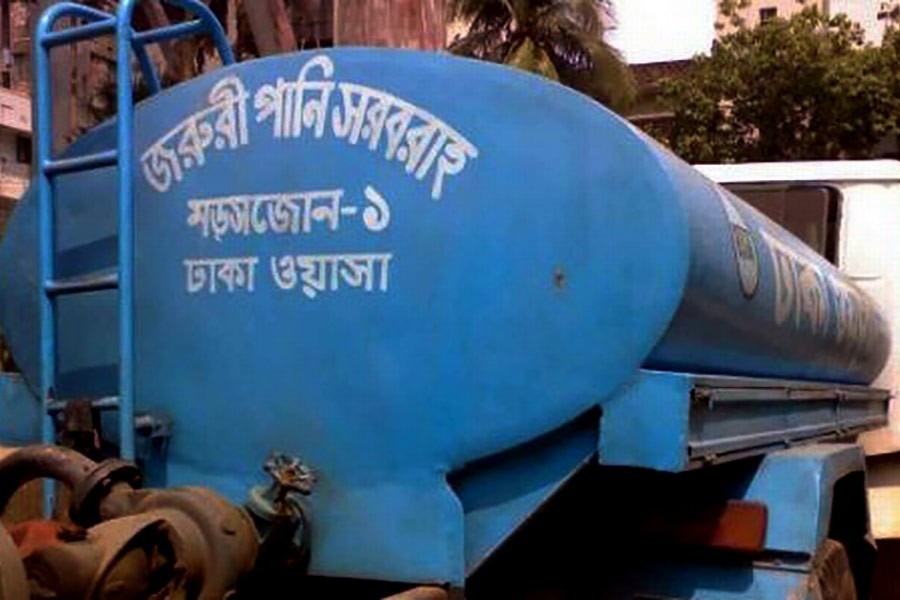The Dhaka Water and Sewerage Authority (DWASA), these days, often hit the news headlines for the proverbial neglect of its remit and apathy towards public sufferings on account of poor utility service. On occasions, reports do also appear in the newspapers on the prevalence of graft in this state-owned utility service provider. For instance, significantly, a probe report prepared by the Anti-corruption Commission (ACC) recently has exposed how sufferings of the residents of Dhaka in the matters of quality and quantity of piped water, sewage disposal and water-logging is linked with the prevalence of massive graft in this organisation.
The ACC probe report, which was handed over to the minister in-charge of the Ministry of Local Government, Rural Development and Cooperatives late last week, detected corrupt practices in at least 11 areas. A dishonest section of DWASA officials, according to the report, deliberately extend deadlines of various projects to hike project cost to maximise the size of their graft money. Besides, these people make payments to contractors well before the completion of projects within their respective deadlines. The ACC in its report particularly mentioned the names of a number of projects where the DWASA officials and contractors had gotten involved in such irregularities.
It is not that only taxpayers' money is wasted or misappropriated because of the deliberate delay in development project execution by the DWASA. Its subscribers do also suffer, in terms of availability of adequate and pure water and also due to serious water-logging problem at several city points. A particular project does deserve a special mention. The Executive Committee of the National Economic Council (ECNEC) in the fiscal 2017-18 approved a project to excavate and restore a few important projects in Dhaka city to help resolve the perennial problem of water-logging.
The project is scheduled to be completed at the end of December next, but the DWASA is yet to invite tenders for the project. The way the DWASA is progressing, it might take few more years to implement the project. In the meanwhile, it is most likely that the Planning Commission would soon be approached for a hike in the cost and extension of time for execution of the project. The rot exposed by the ACC probe, in fact, is not confined only to development project execution. It has also gone deep down to administrative and maintenance areas.
However, what has been unearthed by the ACC is nothing spectacular. In fact, this has been a common practice in most other government agencies. The intensity of irregularities might have gone up in recent years in the absence of an effective accountability process. Moreover, some agencies are seen to be more susceptible to such irregularities. The DWASA appears to be one of them.
What's, however, surprising is that the top management of this vital service providing agency is not adequately attentive to the need for correcting the wrongs being pointed by its clients and experts. Rather, one can well read a few signs of denial in its attitude. The relevant minister, reportedly, however, while receiving the ACC report promised to take actions, if anyone found guilty of wrongdoing. The DWASA clients in particular and taxpayers in general would expect that the ministry concerned would mean business and that the probe report in question would not be pushed under the rug.


